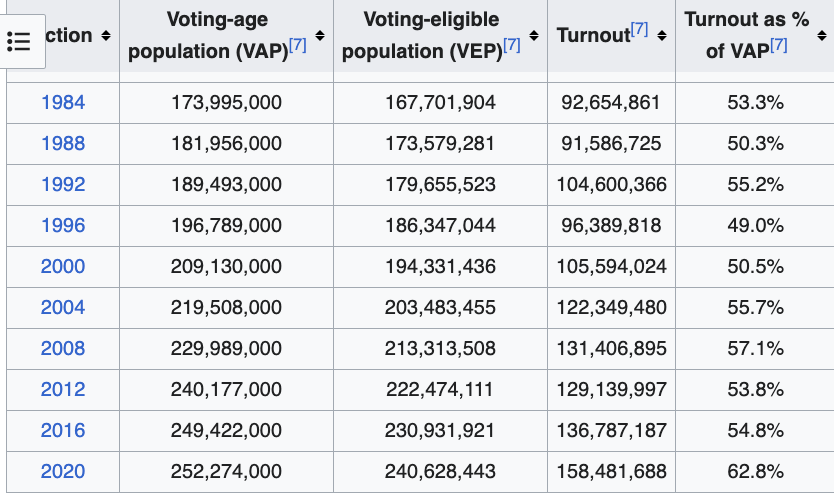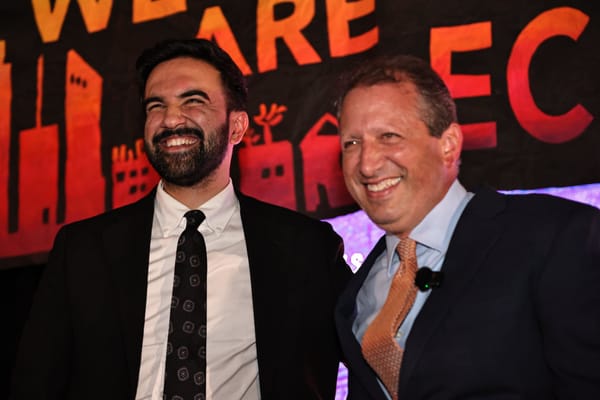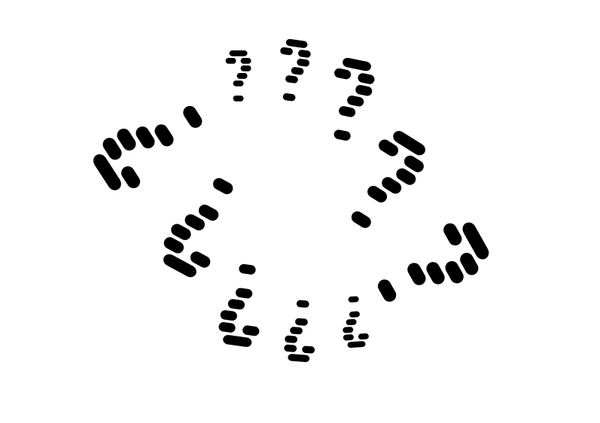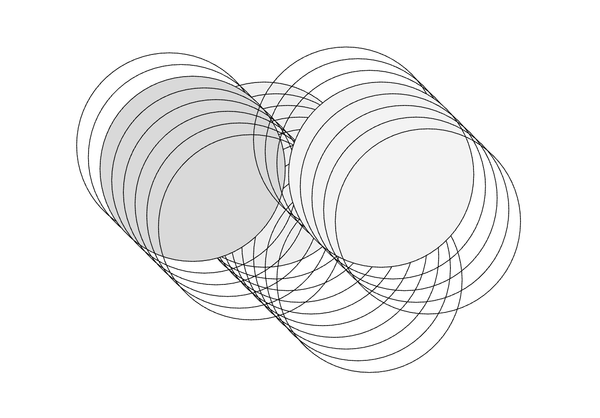None of this is crazy
Reckoning with electing Trump. Again.

Let me start by saying that I was still an anxious mess, curled on my friends’ couch, hugging a pillow, practicing breathing techniques to avoid a panic attack while we pretended a Tiny Desk Concert could evaporate what we knew was happening on everyone else’s screens.
But neither that feeling, nor the grief, anger, or fear I feel this morning about another Trump presidency contradicts another, more unusual feeling, about this outcome. That it fits. That it makes sense.
That it is the logical and even appropriate output for the inputs of this America.
And so: a part of me is soothed.
It fits what we watch, read, and hear. We have a decimated media ecosystem that has been reduced to a vast array of right-wing extremist outlets and a few legacy institutions still trying to play “both sides.” The local news, along with our arts and culture, perpetually communicate that we are unsafe or that we need to be saved by someone strong. The threat of crime is the basis for our most popular TV shows; the prospect of superhero saviors our most popular movies. There is no popular alternative to the toxic masculinity of Trump, Rogan, Musk. Our social media platforms are either outright run by right wing ideologues or are, at minimum, structured to promote extremism and insulation.
It matches the reality of America, too. We have far too many people in poverty, and over twice as many in perpetual precarity. Jobs, when we get them, are insecure and poorly paid. We have bad health and worse health care. Beyond the cycles of crime panic, we are actually and perpetually more violent than any of our peers. We face existential climate threats and extreme weather events without any real plan or protection.
And it reflects the political system that metabolizes all that discontent. We have a party system that represses democratic representation. We have an electoral college and senate that warps incentives and devalues entire populations. And the elections we run through them are both hard to participate in but easily bought by a tiny and wealthy elite.
Given the enduring failure of this system to make life better, it is not surprising that many people simply ignore it. The most popular choice among eligible voters in any given election is simply not to vote.
But for those who continue to pay attention, should one be happy with such a context? Why wouldn’t you be mad? How could you not be scared? These sentiments are a logical outcome of both real problems and manufactured ones — but the sentiments themselves are authentic.
This is not apologism. Individuals make their choice and I condemn them for it. But I understand it. I get how it happened. I am clear on the societal conditions behind it.
It makes sense to me now that every successful presidential candidate since 2008 has been the one that has promised more change, no matter the kind.
Biden was lucky enough to barely win in 2020 and the Democratic establishment interpreted it as a preference for normalcy. It was likely another mandate for something different. People continued to be unhappy because conditions didn’t really change, but the Democratic party decided to re-run the same campaign (with a diminished Biden as the candidate for most of it). Harris’ loss is terrible, gutting, dangerous. But it is not illogical.
It would be more bewildering, more unnerving to me, if, given this cauldron of unhappiness, people chose the option promising more of the same. There would be no meaning, no analysis, and no ground upon which we could build something else.
Perhaps this is pathetically little to be soothed by, a desperate way to cope. But it is at least more than the leaders of this Democratic party have been able to wrap their heads around. Trump’s first election in 2016 represented for me, as for the vast majority of Democrats, a deep alienation from the Americans who elected him – and there’s no doubt, today, I still want nothing to do with many of them. But this time it will hopefully become undeniable that our most severe isolation, and largest obstacle, is structural. We must figure out how to revive some clarity of information, and to transform the worst impulses of our culture. We must figure out how to rebuild old civic institutions and imagine new ones. Most immediately, we must replace this Democratic establishment and produce a political alternative with a vision that reckons with discontent and actually provides solutions. We know that in the coming years Trumpism will once again prove hollow – and we’ll be left with all the more suffering to confront.



